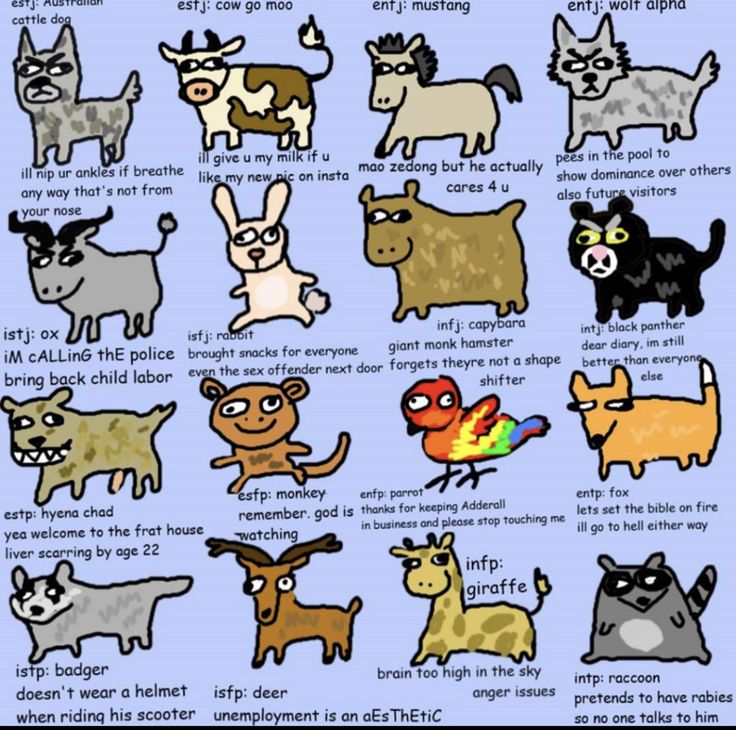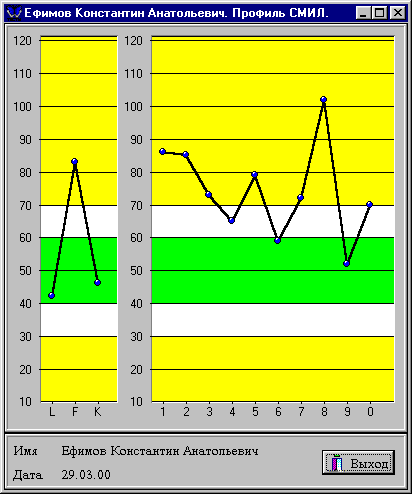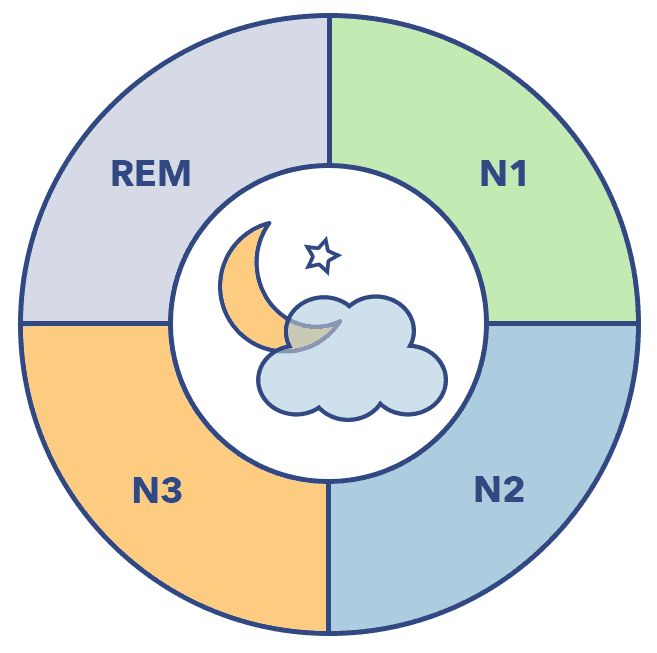Dog for your personality type
Here's Which Dog Breed You Are, Based On Your Personality Type
After studying mental illness and personality disorders for the last few weeks, I was in the mood for something more lighthearted. I’ve made fun of the ‘what type of dog are you?’ tests before, but I still felt the urge to explore this theme.
Part of the reason I felt a desire to explore dogs and personality type is because my husband and I recently adopted an Australian shepherd mix puppy from our humane society. Quickly I noticed some distinctive personality traits that made him unique from other dogs I’d had in the past – for one, he’s a herder. When I take him out for walks with the kids he tries to herd them all into line and gets very upset if one of the kids is lagging behind or is too far ahead. During these daily walks, I started pondering different dog breeds and how they might match up to certain MBTI® types. While this post isn’t meant to be taken too seriously I think it can be a lot of fun to discover which breeds have certain characteristics in common with our personality types.
I hope you enjoy this!
Not sure what your personality type is? Take our new personality questionnaire here. Or you can take the official MBTI® here.
ESTJ – The Briard
One of the best canine guardians you’ll find anywhere is the Briard. While many dogs are bred for herding or guarding; the Briard was bred to do both jobs. They are intelligent, responsible, loyal, and vigilant – much like the ESTJ. Often called “a heart of gold wrapped in fur”, these dogs are known for their incredible memory and trainability. They like to herd animals or people into the correct boundaries, and they like routine and having a definite authority figure in charge. While they may seem to be all about work; these dogs have an unexpected gentle side, and grow very close to their families – often being very upset if left alone for long periods of time.
ENTJ – The Border Collie
Border collies are probably the most intelligent dog breed you’ll find anywhere.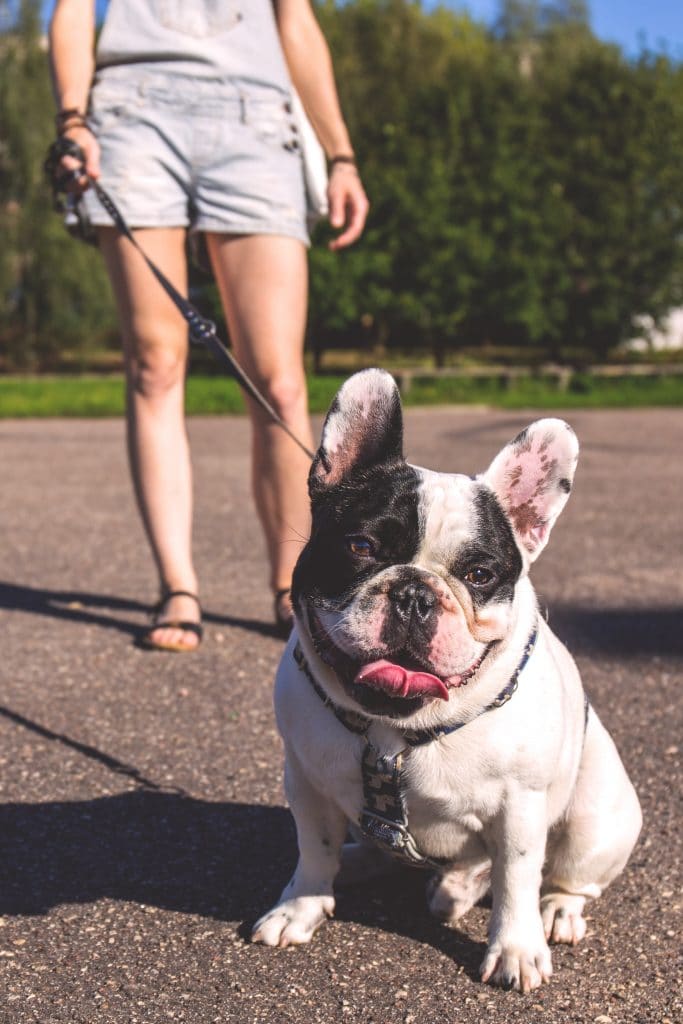 Known for their intense stare, unlimited energy, and working drive, these dogs exhibit a lot of ENTJ tendencies. Known as “workaholic dogs” these collies are not cuddly couch potatoes. They have intense mental and physical stamina and like to get jobs done and constantly learn more. These collies have no problem taking the lead and directing and will herd anyone – animal or human – into their designated location. They are known for their intuitive ability to predict their owner’s desire in advance – similar to the ENTJ’s intuition about how to predict future trends or business opportunities. Border collies are intelligent, intensely curious – and my pick for the best fit ENTJ dog breed.
Known for their intense stare, unlimited energy, and working drive, these dogs exhibit a lot of ENTJ tendencies. Known as “workaholic dogs” these collies are not cuddly couch potatoes. They have intense mental and physical stamina and like to get jobs done and constantly learn more. These collies have no problem taking the lead and directing and will herd anyone – animal or human – into their designated location. They are known for their intuitive ability to predict their owner’s desire in advance – similar to the ENTJ’s intuition about how to predict future trends or business opportunities. Border collies are intelligent, intensely curious – and my pick for the best fit ENTJ dog breed.
ISTP – The Siberian Husky
A striking appearance. A quick mind. Extreme independence. Could you get more ISTP than a Siberian Husky? These dogs are known for their intelligence and ‘lone wolf’ status – finding a way to escape just about any enclosure to go out and explore the world for themselves.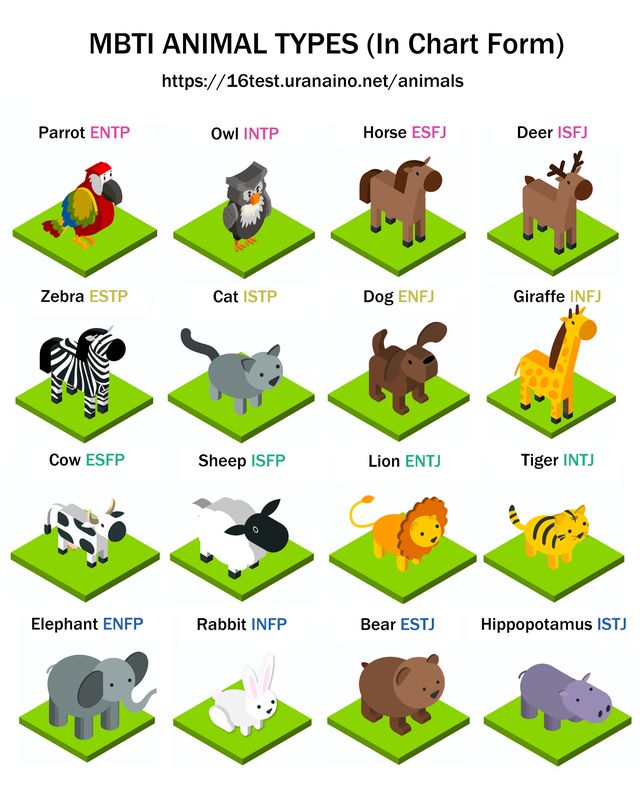 Husky’s tend to be on the quiet side, and aren’t too keen on pleasing people. They hate to be caged in, much like the ISTP, and if cooped up in a small space they will often become destructive and tear things apart. They long to explore the world, be free to roam, and are often some of the most difficult dogs to train – even though they’re so intelligent. In fact, Siberian Husky’s are so intelligent that they will “hack” their way through obedience school – performing for their teachers and then shirking what they’ve learned when they get back home.
Husky’s tend to be on the quiet side, and aren’t too keen on pleasing people. They hate to be caged in, much like the ISTP, and if cooped up in a small space they will often become destructive and tear things apart. They long to explore the world, be free to roam, and are often some of the most difficult dogs to train – even though they’re so intelligent. In fact, Siberian Husky’s are so intelligent that they will “hack” their way through obedience school – performing for their teachers and then shirking what they’ve learned when they get back home.
INTP – The Schipperke
Often nicknamed “the little black devil” the schipperke is one of the most curious and clever dogs around. These dogs are quiet and thoughtful and are famous for patrolling their homes and eradicating any intruders (vermin, squirrels, etc) that invade their territory. They love their families and can be quite gentle-natured and affectionate, but they are wary of strangers and don’t like lots of people invading their space.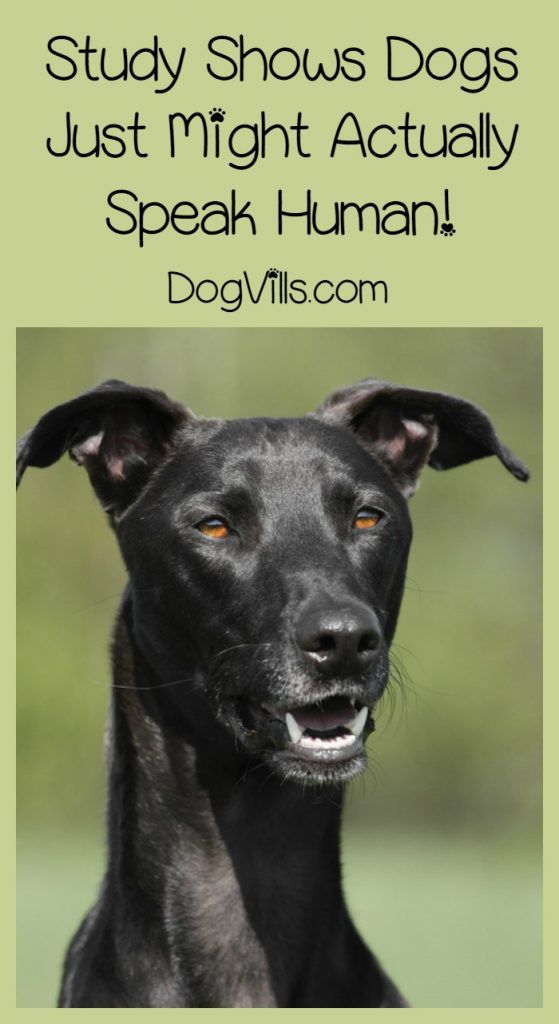 The schipperke is very independent and curious, much like the INTP, so even though they are highly intelligent, they can be a lot of work to train because they like to do things their own way. The AKC calls the Schipperke “Alert, curious, intense, but with a dash of mischief and impudence”.
The schipperke is very independent and curious, much like the INTP, so even though they are highly intelligent, they can be a lot of work to train because they like to do things their own way. The AKC calls the Schipperke “Alert, curious, intense, but with a dash of mischief and impudence”.
Related: Understanding INTP Thinking
ENFP – The German Shorthaired Pointer
This energetic, enthusiastic dog is famous for its hunting skills as well as its tendency to be a devoted family companion. German shorthaired pointers love people and can get very depressed if left alone for too long. These dogs have tons of energy and need to be exercised a lot. Like the ENFP, German shorthaired pointers are adventurous and love to explore the world with their family. They get bored easily, so they like to be involved in a variety of tasks and have the opportunity to explore new places. If you leave them cooped up for too long they can become excellent escape artists – they need to be kept busy and have plenty of time to roam without restrictions.
Related : Understanding ENFP Intuition
ENTP – The Standard Poodle
Named the second smartest dog in the world, poodles aren’t just foofy beauty queens. These dogs are experts in numerous fields including, but not limited to, herding sheep, hunting waterfowl, or crossing battlefields to bring supplies to wounded soldiers. Poodles are renowned for their dignity, intelligence, and playfulness. Poodles love people and want to stay close to their families – at the same time, they’re intensely curious, always wanting to explore new skills and learn new things. They are very mentally active and outgoing, much like the ENTP.
INFJ – The Tibetan Mastiff
These noble, quiet dogs are known for their sophisticated way of understanding people. They are loving, gentle, and patient – but also hard-working, protective, fearless, and loyal. Along with these positive traits, Tibetan Mastiffs are extremely independent.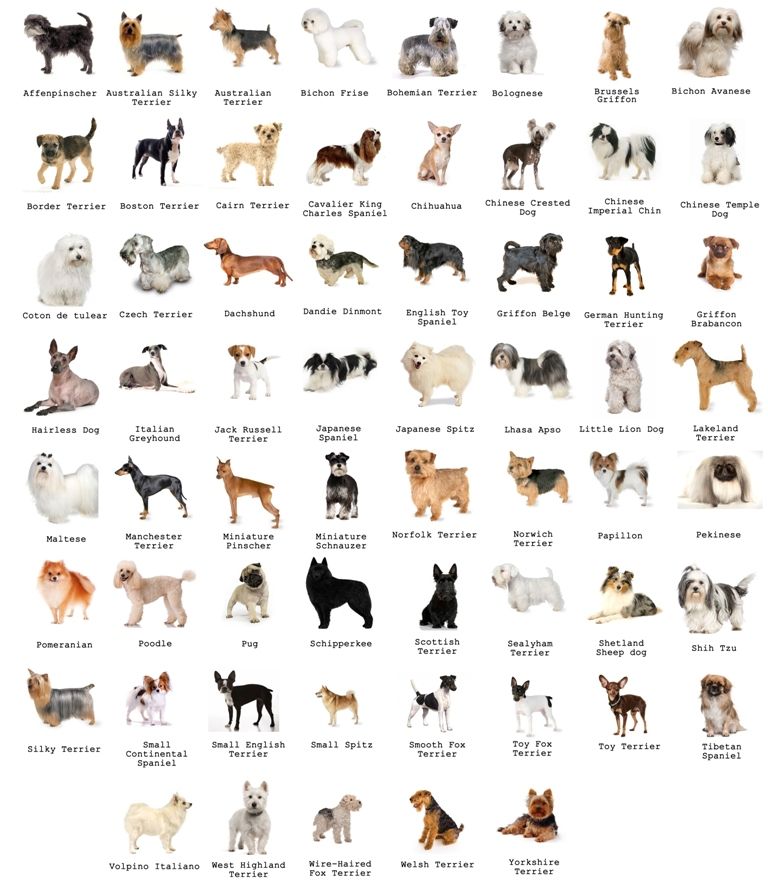 Like INFJs, they have a mind of their own and tend to stick to their guns on what they believe they should do. Dogtime.com says, “Tibetan Mastiffs have a strong instinct concerning people, and if they don’t get over their initial dislike of a particular person, there’s usually a reason.” They are extremely sensitive to human moods and will become distressed if there is anger, yelling or shouting in their home. They thrive in calm surroundings and usually prefer the closeness of their family to socialization with many other people.
Like INFJs, they have a mind of their own and tend to stick to their guns on what they believe they should do. Dogtime.com says, “Tibetan Mastiffs have a strong instinct concerning people, and if they don’t get over their initial dislike of a particular person, there’s usually a reason.” They are extremely sensitive to human moods and will become distressed if there is anger, yelling or shouting in their home. They thrive in calm surroundings and usually prefer the closeness of their family to socialization with many other people.
Related: Understanding INFJ Intuition
INTJ – The Chinese Shar-Pei
These quick-witted, intelligent dogs are famous for their strong will and independent nature. They were bred as fighting dogs and watchdogs – and they will guard their family devotedly. Shar peis are wary and aloof with new people and don’t prefer a busy, social environment. They are a largely silent breed, barking only when they perceive a real threat.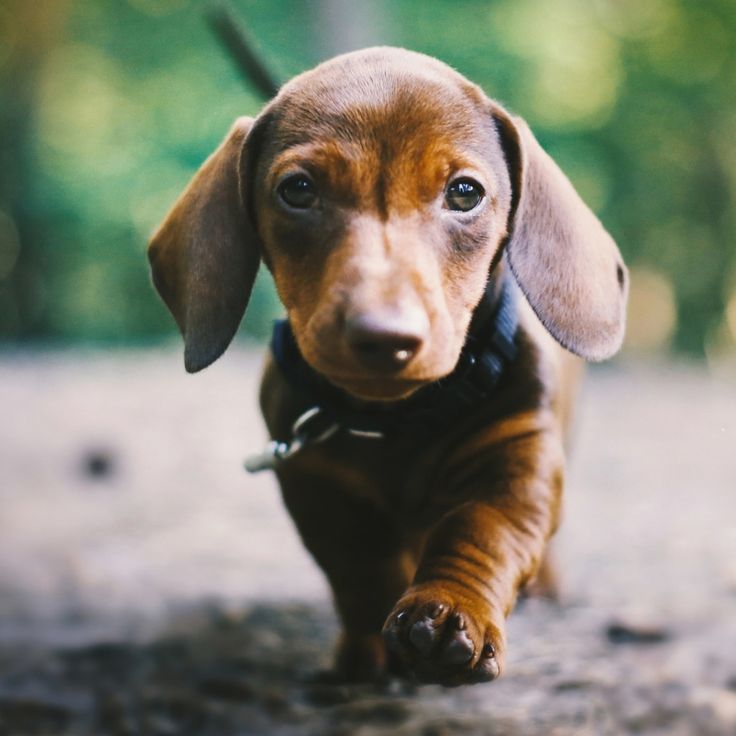 Like INTJs, the Shar pei is insightful and intense – although, as dogs, they use this tendency to try to protect their family or territory from potential dangers. They are incredibly smart dogs, who have a strong will and independence which makes them somewhat difficult to train if not done at an early age. They are calm, reserved but extremely faithful to the ones they love.
Like INTJs, the Shar pei is insightful and intense – although, as dogs, they use this tendency to try to protect their family or territory from potential dangers. They are incredibly smart dogs, who have a strong will and independence which makes them somewhat difficult to train if not done at an early age. They are calm, reserved but extremely faithful to the ones they love.
Related: Understanding INTJ Intuition
ESFJ – The Labrador Retriever
This warm, intelligent dog breed is known for its loving, people-oriented nature and keen intelligence. Friendly and devoted, labs love to serve their family, and many lab owners refer to their dogs as “angels with fur”. They make excellent therapy dogs; visiting homes for the elderly and hospitals to brighten the day of patients. They are smart, so they are often used as assistance dogs for the handicapped or as search and rescue dogs. Just like the ESFJ is caring and devoted to the needs of their friends and family, the labrador retriever has an undying devotion to their family, and wants to do what they can to cheer everyone up.
ENFJ – The Collie
This incredibly devoted, insightful dog is famous for coming to the rescue of people and animals in distress. Like the ENFJ, collies have an uncanny ability to know when something is wrong, and this ability has made them the subject of many heroic dog stories including Lassie. Good-natured and friendly, collies are usually easy to train – longing to please their family. They are very protective, and while they seem good-natured and playful, if they perceive a threat they will be unyielding in their fight to protect their loved ones. Collies love to spend time with their family; especially children and make wonderful assistance or therapy dogs.
INFP – The English Toy Spaniel
Known for their sweet-natured personality and gentle spirit, the English toy spaniel is quiet and sensitive – often enjoying the company of just one person or one family. While they get along with other dogs, they tend to be on the timid side, especially with strangers.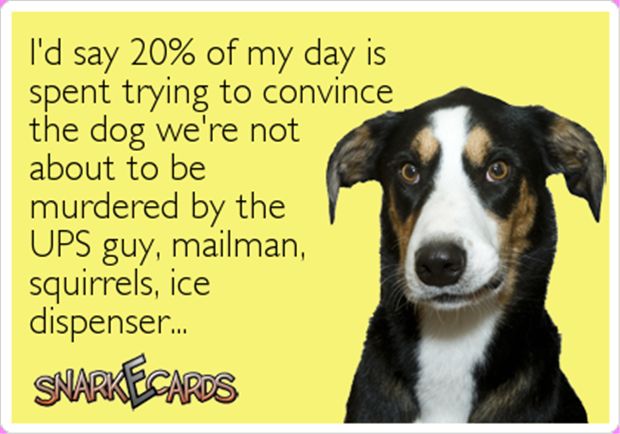 They love children and are often extremely devoted and protective of them. They are very insightful to the moods of their companions and detest conflict of any kind. They don’t like a lot of commotion and excitement and get easily overstimulated from a lot of sensory overload in their environment. Overall, these spaniels are incredible companions and are perfect for a quiet, loving family or individual who needs a devoted four-legged friend.
They love children and are often extremely devoted and protective of them. They are very insightful to the moods of their companions and detest conflict of any kind. They don’t like a lot of commotion and excitement and get easily overstimulated from a lot of sensory overload in their environment. Overall, these spaniels are incredible companions and are perfect for a quiet, loving family or individual who needs a devoted four-legged friend.
ISFP – The Saluki
This intense, beautiful dog is the very definition of grace and agility. Known for their speed, strength, and endurance the Saluki embodies the physical mastery so common to Se-dominant or auxiliary types. Personality-wise, the Saluki is reserved but affectionate. While not overly demonstrative, Saluki’s are extremely devoted and gentle – even shy. Saluki’s thrive on quiet companionship and usually form a strong bond with a single person, disliking large groups of people. They are extremely sensitive and will become stressed by tension within their home. Much like Se-users, Saluki’s love special luxuries – although more of the canine type of luxuries. Soft furniture to lay on, special grooming and brushing, and decadent treats are a favorite of the Saluki. They are fastidious about being clean and love to have a well-groomed appearance.
Much like Se-users, Saluki’s love special luxuries – although more of the canine type of luxuries. Soft furniture to lay on, special grooming and brushing, and decadent treats are a favorite of the Saluki. They are fastidious about being clean and love to have a well-groomed appearance.
ESFP – The Papillon
This highly active dog is one of the best entertainers around, much like the ESFP. Papillons are bright, busy, and endlessly curious – always flitting around looking for something new to do and discover. The papillon is extremely outgoing and energetic and loves to be “clownish” to entertain his people. They hate to be alone and will become quite distressed if left to themselves for too long. Papillons are listed as the 8th smartest dog breed, and they have an abundance of energy and enthusiasm for learning new skills and tricks.
ESTP – The Dalmatian
Sleek, athletic, and charming – Dalmatians capture the adventurous spirit of the ESTP.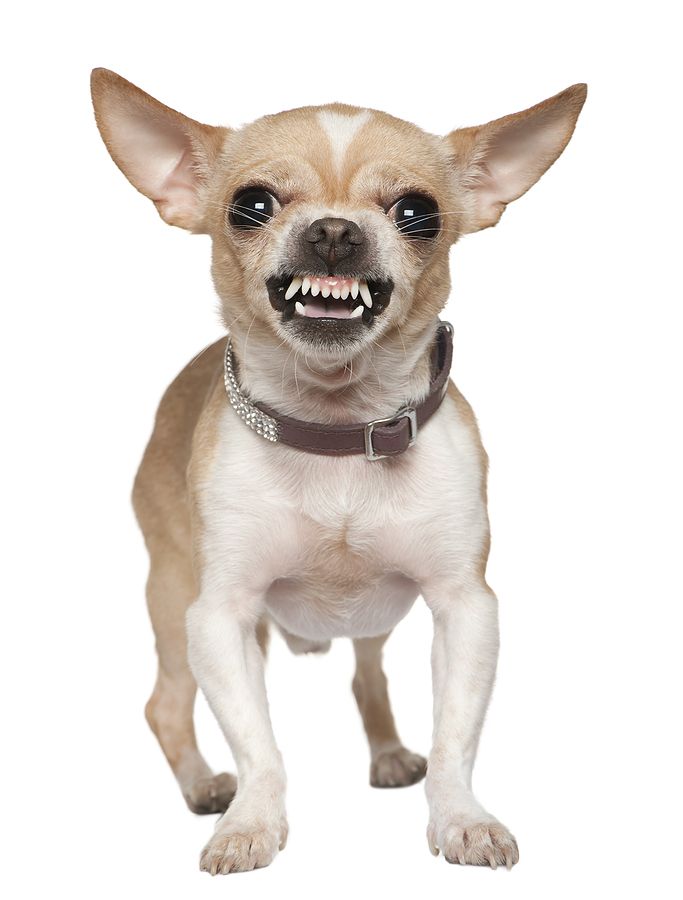 Dalmatians are jacks-of-all-trades; making excellent hunters, firehouse dogs, and even circus performers! Dalmatians are high-energy dogs with little patience for sitting around on someone’s lap. They’re smart, with a sly sense of humor that they love to use to make their people laugh. The dalmatian is alert and highly aware of everything going on around them, much like Se-dominant types are. They’re also very independent and have a tendency towards wanderlust. The world has so much to explore that the dalmatian is going to want a lot of opportunities to get out and run around in it.
Dalmatians are jacks-of-all-trades; making excellent hunters, firehouse dogs, and even circus performers! Dalmatians are high-energy dogs with little patience for sitting around on someone’s lap. They’re smart, with a sly sense of humor that they love to use to make their people laugh. The dalmatian is alert and highly aware of everything going on around them, much like Se-dominant types are. They’re also very independent and have a tendency towards wanderlust. The world has so much to explore that the dalmatian is going to want a lot of opportunities to get out and run around in it.
This gentle giant is known for its sweet nature, intelligence, and strength. Newfoundlands are naturally gentle and friendly, often doting on children as is evidenced by “Nana”, the fictional Newfoundland employed as a nanny by the Darling Family in Peter Pan. Newfoundlands have a strong work ethic, learning quickly, and using their skills to help people in distress.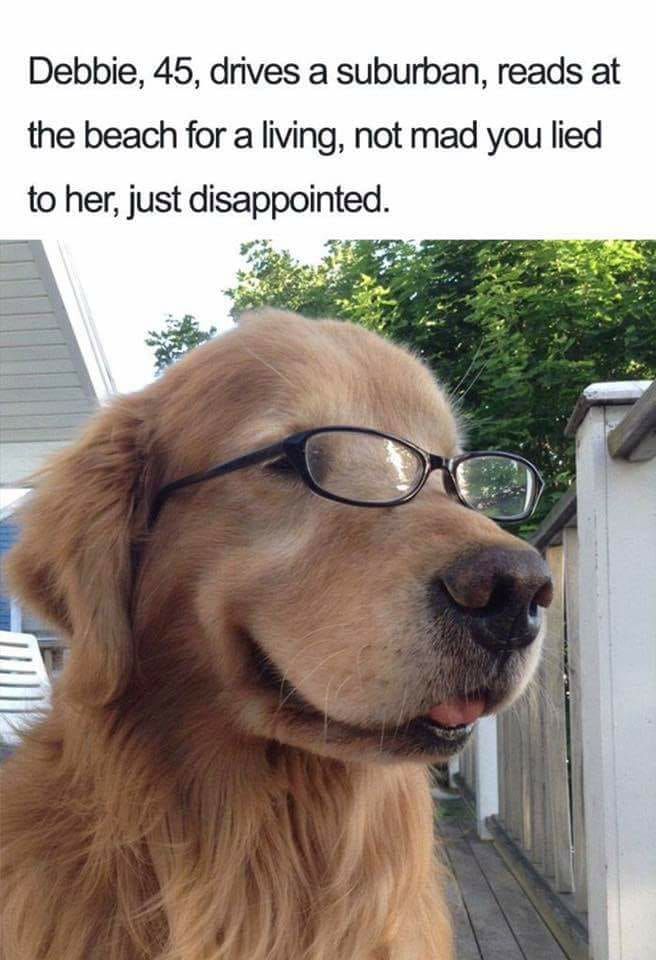 There are many stories of Newfoundlands rescuing people from shipwrecks or pulling children from icy deep water just in time. They are responsible, hard-working dogs that capture a lot of traits similar to the ISFJ.
There are many stories of Newfoundlands rescuing people from shipwrecks or pulling children from icy deep water just in time. They are responsible, hard-working dogs that capture a lot of traits similar to the ISFJ.
ISTJ – The Rhodesian Ridgeback
The Rhodesian Ridgeback was bred in Africa as a hunter, famous for hunting lions and bears or guarding homes against danger. They are loyal, responsible, smart, and somewhat stubborn. This breed likes mental stimulation, and even their eyes seem to have a quiet, thoughtful look about them. Rhodesian Ridgebacks are soft-spoken dogs unless faced with a threat – then they are fearless at defending their people. They are reserved with strangers, but gentle and affectionate with family. They are strong-willed dogs that thrive under clear boundaries, a structured environment, and strong leadership.
Find out more about your unique personality type in our eBooks, Discovering You: Unlocking the Power of Personality Type, The INFJ – Understanding the Mystic, The INFP – Understanding the Dreamer, and The INTJ – Understanding the Strategist.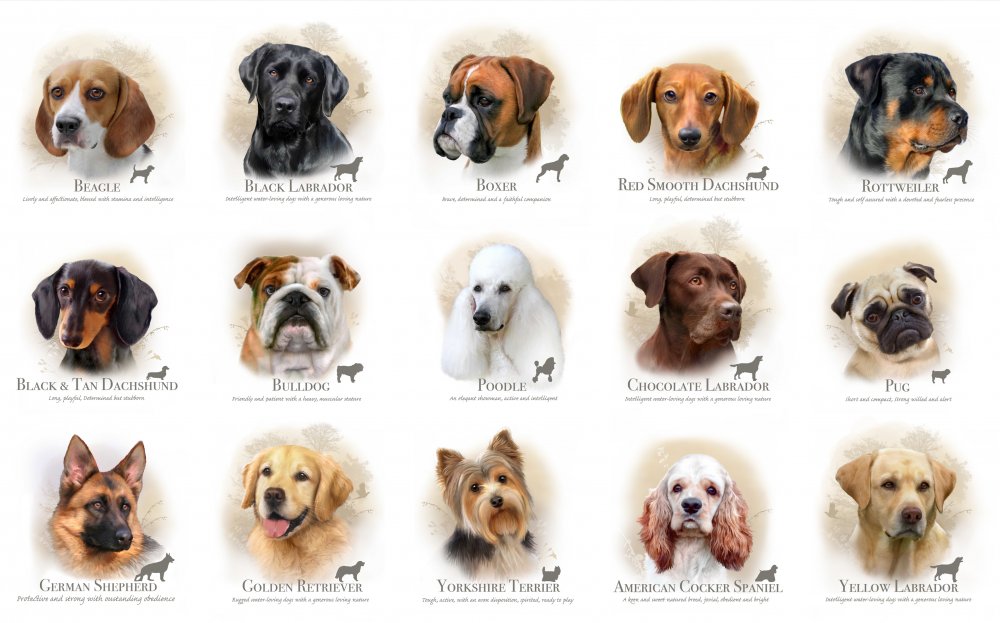 You can also connect with me via Facebook, Instagram, or Twitter!
You can also connect with me via Facebook, Instagram, or Twitter!
If you liked this post, then you’ll love these!
Discover Your Superpower – Based on Your Myers-Briggs Personality Type
How to Communicate Effectively with Any Myers-Briggs Personality Type
This article contains affiliate links. I only recommend products I truly believe in.
What are your thoughts?
Do you feel like my assessments are correct? Do you disagree? Let’s talk dogs in the comments! I’d love to hear from you!
- More
The Best Dog Breed for You, Based on Your Personality Type
The Best Dog Breed for You, Based on Your Personality Type Search iconA magnifying glass.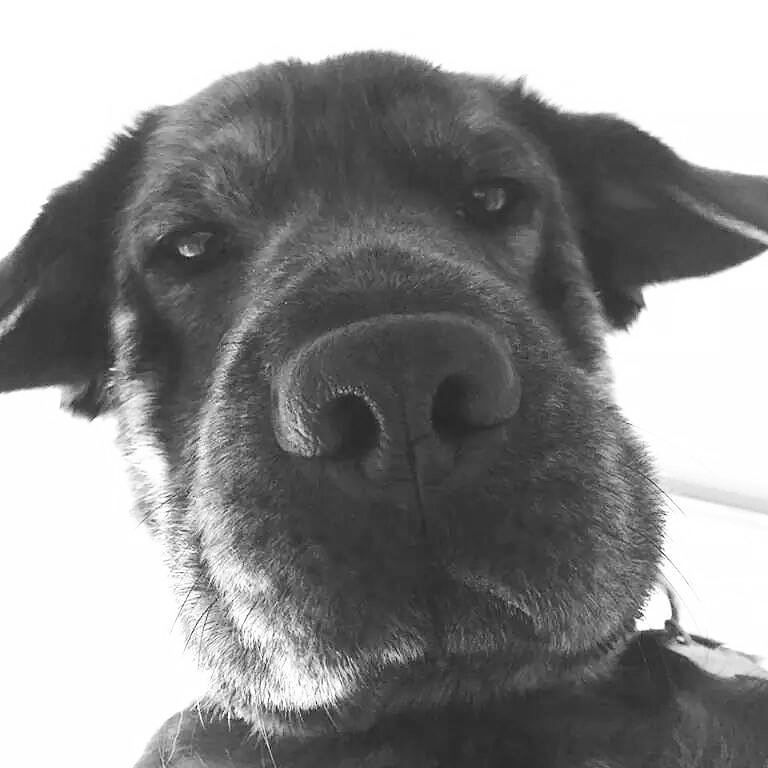 It indicates, "Click to perform a search". Insider logoThe word "Insider".
It indicates, "Click to perform a search". Insider logoThe word "Insider". US Markets Loading... H M S In the news
Chevron iconIt indicates an expandable section or menu, or sometimes previous / next navigation options.HOMEPAGEInsider
Hannah Loewentheil,
PureWow Entertainment
2018-04-09T21:08:46Z
Save Article IconA bookmarkShare iconAn curved arrow pointing right.Download the app
Match a dog breed with your personality type.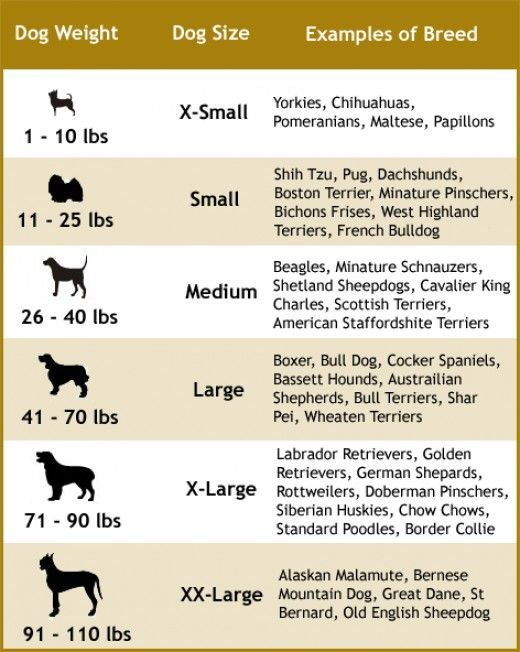 Chris Young
Chris Young - If you're torn about what kind of dog to get, you should consider matching one up with your personality.
- German Shepherds work well with ISFJ personality types since they are one of the most loyal and obedient breeds.
- Beagles need lots of attention and having an owner with an ESTP personality suits them.
Getting a dog is a big decision, and no two breeds are exactly the same. For example, a lazy basset hound may be content chilling all day on his doggy bed, but that frisky golden retriever isn’t going to entertain himself. You might want to rethink which dog is right for you. Here are the breeds best suited for each Myers-Briggs personality type.
ISTJ: Pekingese
They're great dogs to count on. Olga Kuzyk/Shutterstock
Olga Kuzyk/Shutterstock Sure, she might look like an ottoman, but this confident and self-possessed dog doesn’t care what you think about her. She likes to assert control, and she’ll ignore your scolding with little regard for the consequences. Rest assured: Once you gain this breed’s respect, they are reliable and well mannered.
ISFJ: German Shepherd
They can be overprotective of their families. Wikimedia Commons
Wikimedia Commons It would be difficult to find a more loyal breed. Watchful, obedient and intelligent, they want to serve a purpose and keep everyone safe, which often leads them to be overprotective of their families. If you can relate, a German shepherd might be the perfect companion to share the load of responsibilities.
INFJ: Australian Shepherd
They love helping others. Shutterstock
Shutterstock Originally bred to herd sheep, Aussies are workaholics that try tirelessly to tackle any task put in front of them. Energetic, intelligent and loyal, helping others is their main purpose … and it’s probably yours, too.
INTJ: Jack Russel Terrier
Their energy makes them great for families.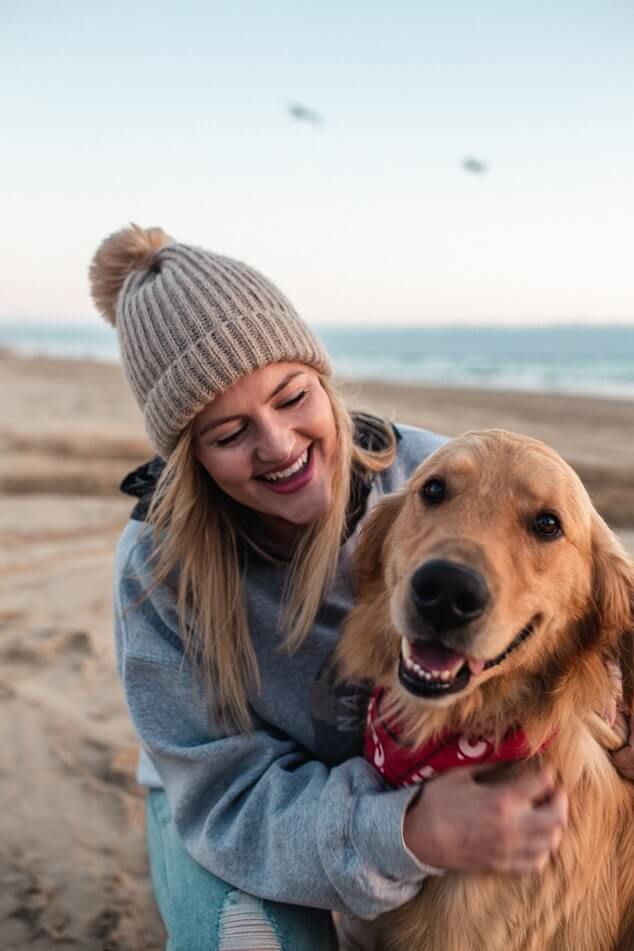 Shutterstock
Shutterstock Smart but possessing a mind of their own, these agile and energetic terriers will always move to the beat of their own drums. They are great dogs for families, but they also enjoy alone time.
ISTP: Rhodesian Ridgeback
Like ISTP personalities, they have a bit of a daredevil streak.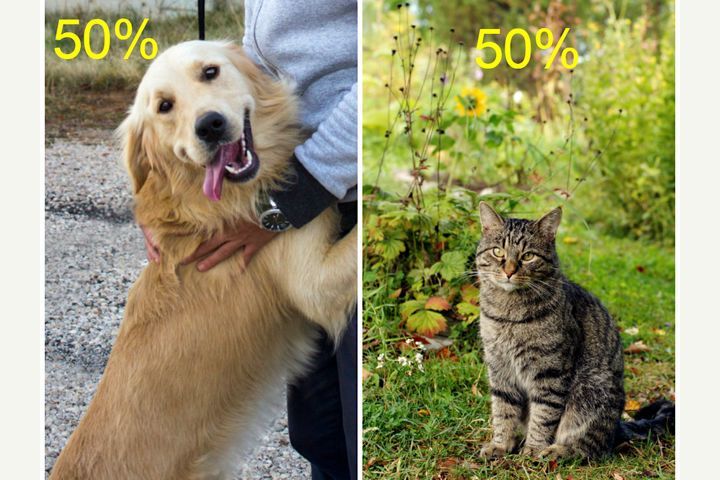 Shutterstock
Shutterstock These handsome and athletic dogs are known for their exploratory and active personalities. They love to get their paws dirty and experience the world … and they can even be a bit daredevilish, unafraid to break from the pack. Remind you of anybody?
ISFP: Shiba Inu
The Japanese breed makes for great companions.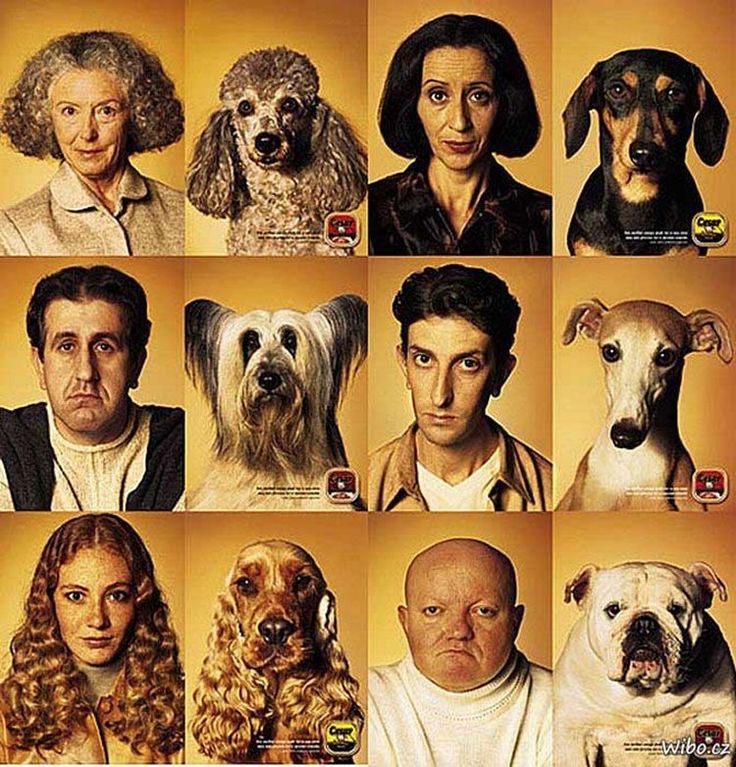 Shutterstock
Shutterstock Fox-like in appearance with upright ears, this Japanese breed is easygoing, peaceful and alert. Though they make great companions, they’re happy minding their own business, laying on a patch of grass and contemplating the ways of the world.
INFP: Tibetan Terrier
Like you, they are loyal to those they trust.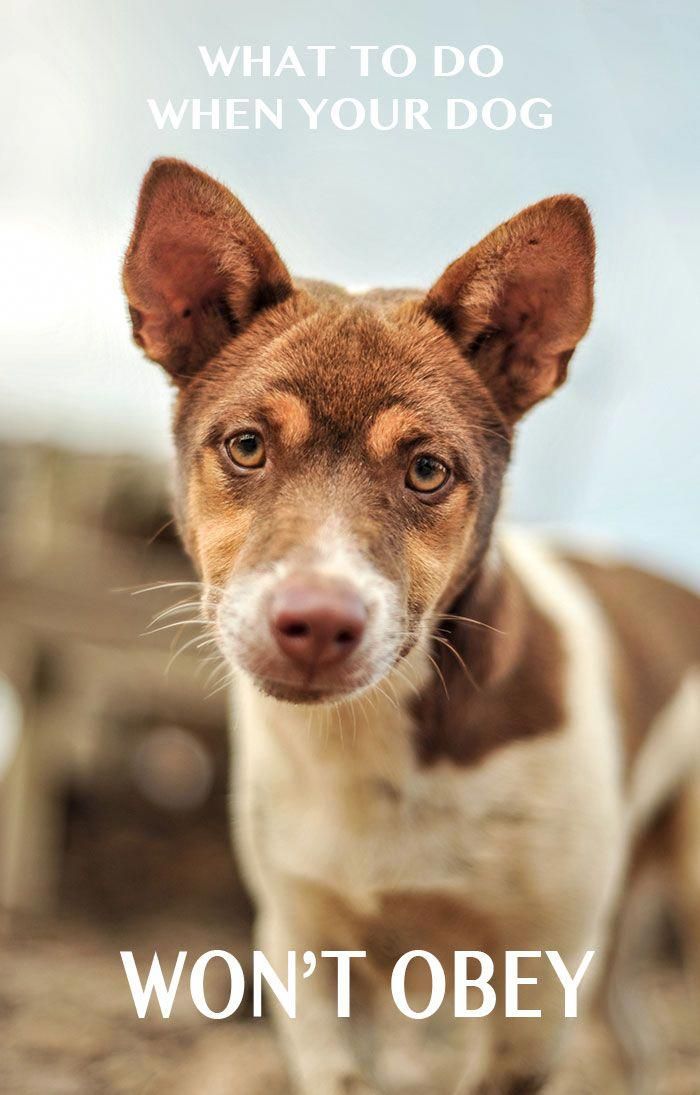 Aggata/Shutterstock
Aggata/Shutterstock These guys are notoriously aloof and reserved to strangers, but they grow to be very affectionate of the people they trust. Sound familiar? Though he’ll rarely curl up on your lap, he’ll follow you around the house like your shadow.
INTP: Chow Chow
Their personalities are similar to those of cats.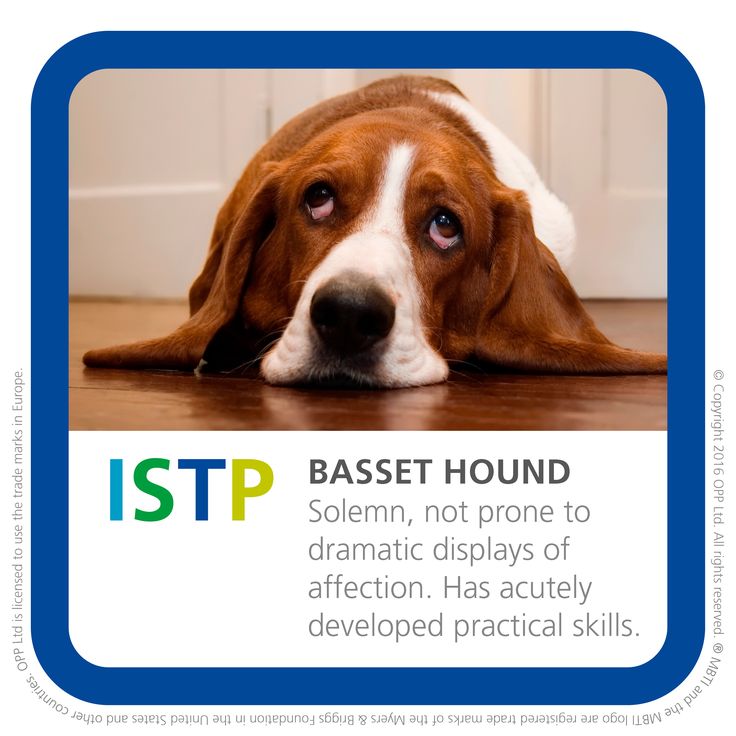 RomBo 64/Shutterstock
RomBo 64/Shutterstock Is that a lion!? No, it’s just a chow chow — although, this breed’s aloof and pensive personality is closer to that of a feline. Chow chows tend to be intelligent, but given their indifferent personalities, they may appear to have their heads in the clouds. That said, these fluffy giants prefer to be by your side than alone.
ESTP: Beagle
Beagles need to be given lots of attention.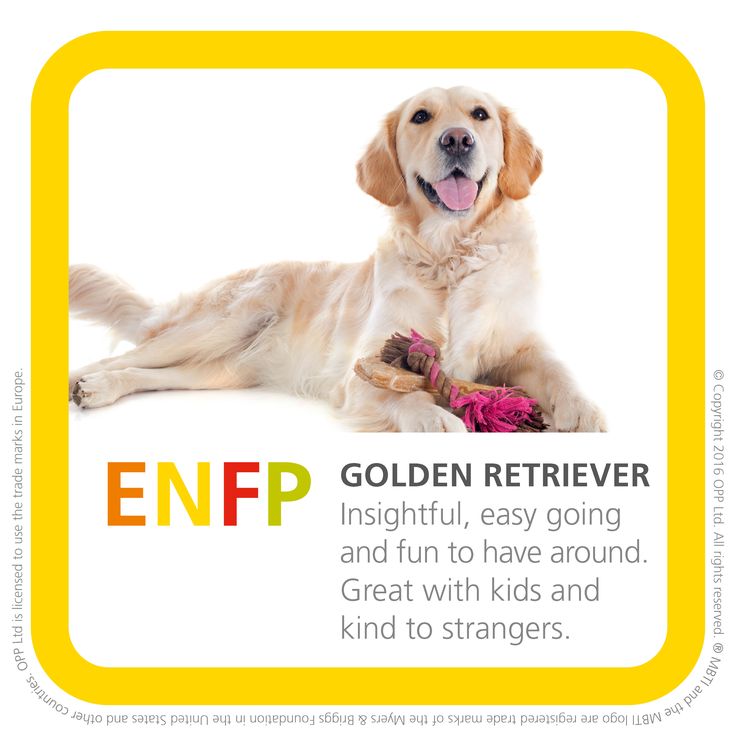 Solovyova Lyudmyla / Shutterstock
Solovyova Lyudmyla / Shutterstock Beagles are playful and active, constantly searching for new adventures. As a result, they’ll get into trouble if not given frequent attention and activity. But at the end of the day, they’re amiable and love constant social interactions.
ESFP: Corgi
Corgis are playful and tend to be the life of the party.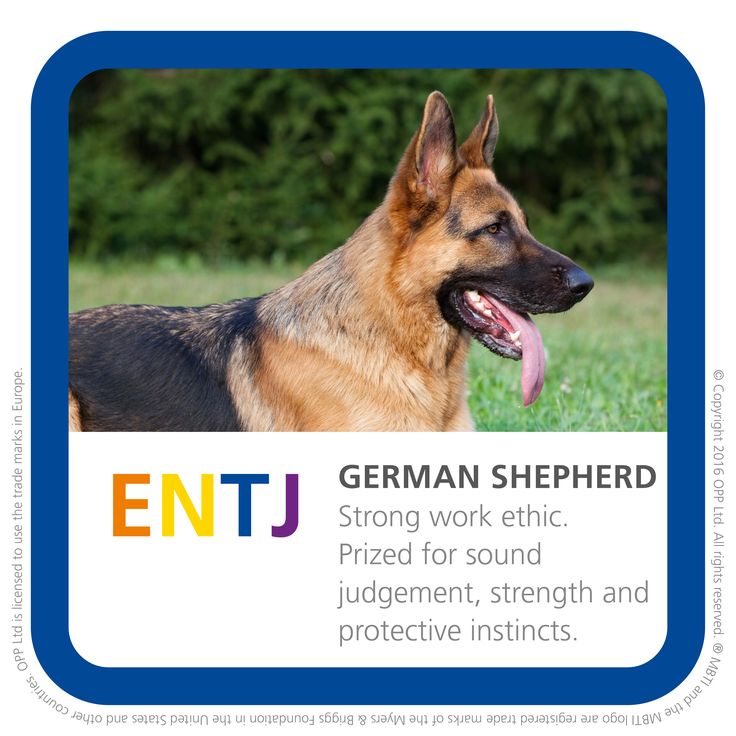 Pmuths1956 on Wikimedia Commons
Pmuths1956 on Wikimedia Commons Just look at their constantly smiling faces: Corgis are the life of the party, and they’re always ready to play. They’re so playful, in fact, that they often have trouble focusing on one task at a time.
ENFP: Labrador Retriever
Lab retrievers are up for any kind of adventure. Gary Gershoff/Getty ImagesWarm, compassionate and intelligent, but also built for sport and activity, these big dogs are always looking for a new adventure. A dip in the ocean, a jaunt in the mountains — they’re game for whatever escapade you take them on.
A dip in the ocean, a jaunt in the mountains — they’re game for whatever escapade you take them on.
ENTP: French Bulldog
French Bulldogs have very strong and stubborn personalities. ShutterstockThis lady may be small in stature, but she’s got a big, lively personality. Don’t let her frowning face fool you: She’s friendly and lovable, albeit a bit feisty.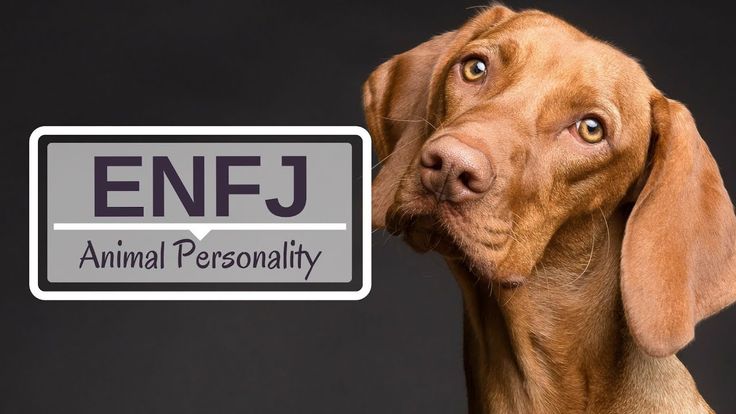 Her stubborn personality may make her inclined to go against your wishes — like chew on your sneakers or jump on the off-limits sofa.
Her stubborn personality may make her inclined to go against your wishes — like chew on your sneakers or jump on the off-limits sofa.
ESTJ: Siberian Husky
Their personalities are often domineering. WikipediaAh, the active, outdoorsy husky. He is always looking for action, especially in cold weather (hence, his common role as a sled dog).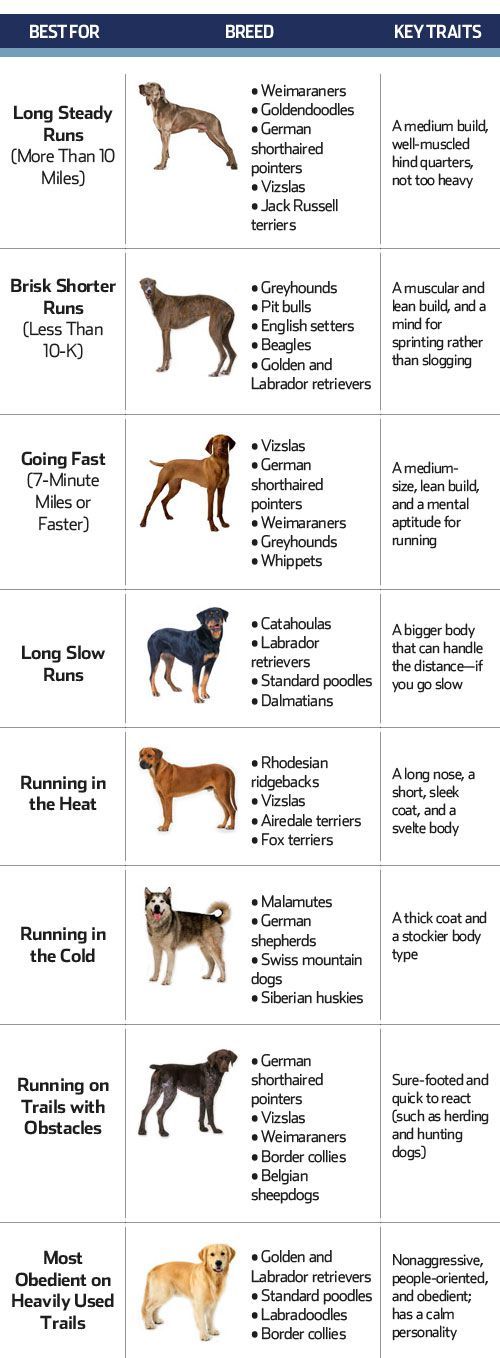 While these wolfish animals are generally good-natured and very dependable, their personalities can be domineering.
While these wolfish animals are generally good-natured and very dependable, their personalities can be domineering.
ESFJ: Bichon Frise
They love to make people happy. Eduardo Munoz/ReutersThe “cheerleader” of the dog world, these little white bundles of joy are, above all, social creatures. Gentle, playful and loving, they thrive on human interaction and will do their best to make people happy.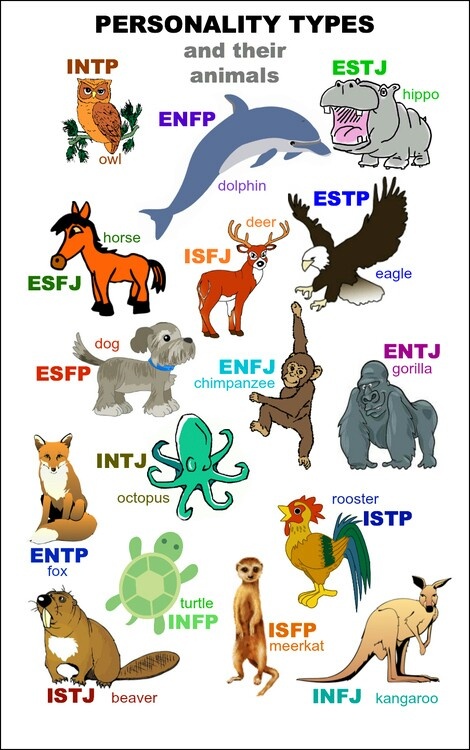
ENFJ: Golden Retriever
Goldens live for social connections. ShutterstockPassionate, charismatic and hands down the cutest pups, goldens are constantly standing up for the people they love. They’re impressively tuned in to the needs of others around them and live for social connections with others. They’ll be the first to dive into the pool after you or fall asleep at the foot of your bed.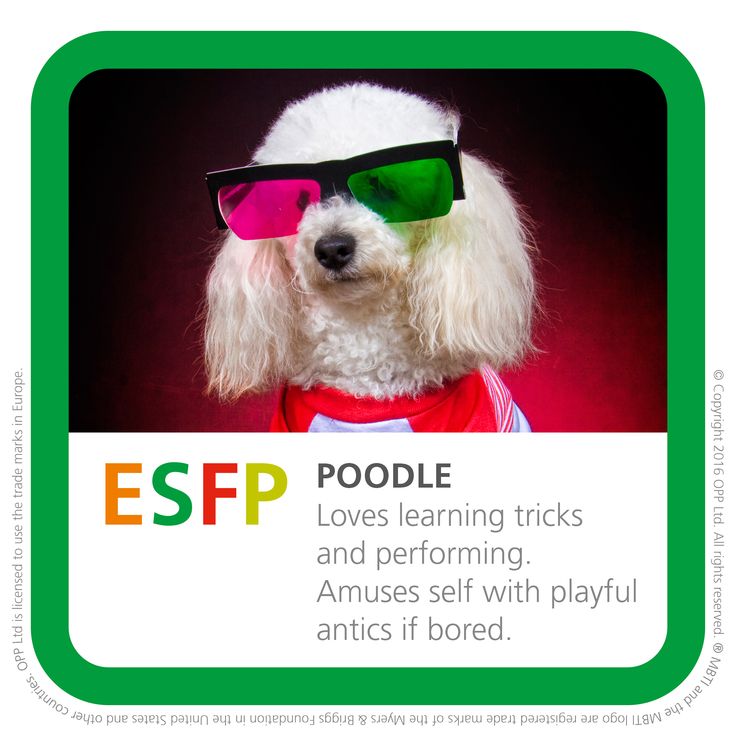
ENTJ: Tibetan Mastiff
They're a little tricky to train. Ekaterina Brusnika/ShutterstockCharismatic and confident, these giant, furry creatures are intelligent and determined, and they love a good challenge. Be warned, they can often be commanding and fairly difficult to train, so definitely keep an eye on who’s actually the leader of the pack.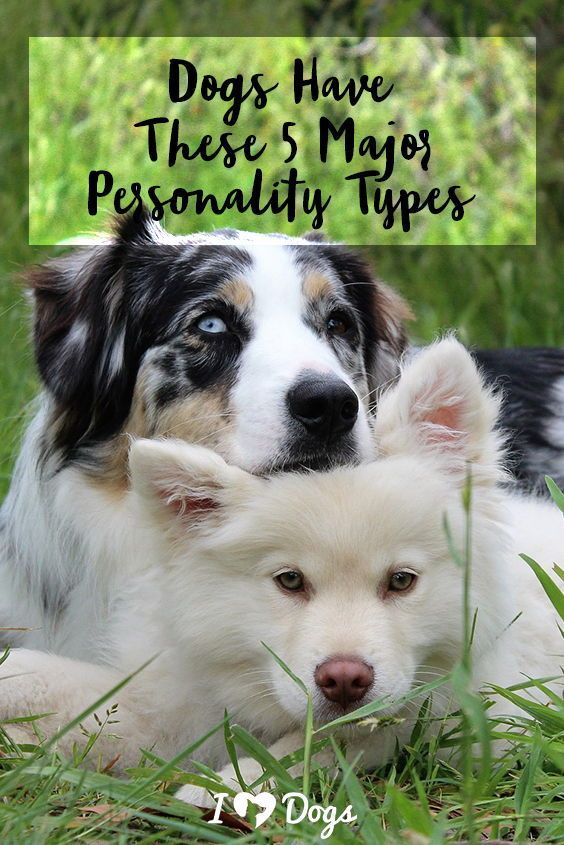
Sign up here to get INSIDER's favorite stories straight to your inbox.
Read the original article on PureWow Entertainment. Copyright 2018. Follow PureWow Entertainment on Twitter.Read next
LoadingSomething is loading.Thanks for signing up!
Access your favorite topics in a personalized feed while you're on the go.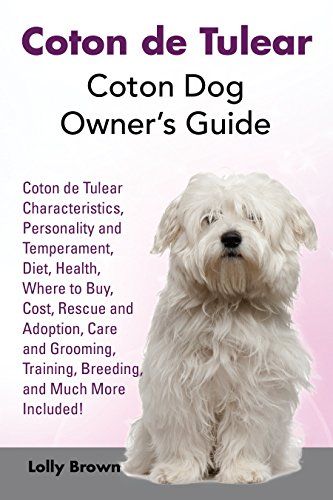
More...
What type of personality does your dog have?
What scientists say
Yorkshire terrier Source: Unsplash appearing mannequin. Scientists analyzed the behavior of the subjects and divided the dogs into six groups, each of which was dominated by one of the following personality traits:- playfulness;
- chasing;
- curiosity;
- sociability;
- insolence;
- shyness.
So the researchers came to the conclusion that these six traits can be considered as certain personality types in dogs. Let's get to know each of them better.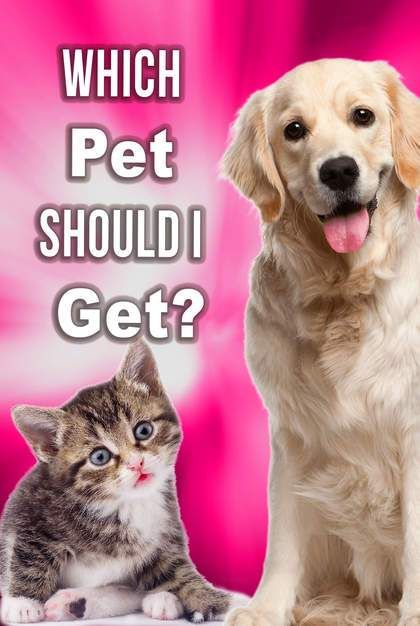
Playful
Source: UnsplashSuch a dog has a high play motivation - and this is good to use in training. One has only to show the toy and give a command, as the pet will immediately start working. These dogs know very well that they do their tricks for a reason - at the end they will always have an exciting game waiting for them.
Playful pets are happy to bring the ball to the owner, catch the Frisbee, pull the rope and drive empty bottles across the floor. Usually they are easily excitable, and one kind of toy is enough for such a dog to fall into a playful mood. A spark of excitement lights up in her eyes, and her tail begins to fly from side to side.
The duration of games with such pets must be controlled, otherwise the dog will “accelerate” and it will be difficult to calm him down. Often playful dogs cannot go into a state of inhibition on their own, and they need help. How to do this competently, you will be prompted by a cynologist - a specialist in dog behavior.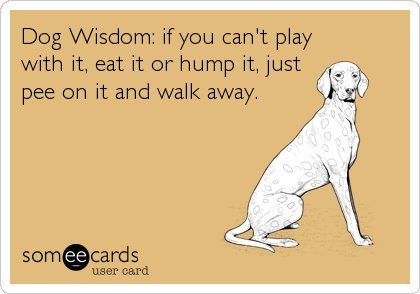
Chasing
Source: UnsplashChasing dogs are excellent hunters. They have excellent hearing, scent and natural instincts. They easily get on the trail, they can catch game or serve for the benefit of society. These pets are real seekers, eager for adventure in any situation.
Often people get these dogs in the city, and life with a hunting dog in conditions full of irritants becomes a test for the owners. The pet can pick up from the ground on a walk, not respond to a call, hunt small animals and cats, run away.
Chasing dogs need a lot of physical and intellectual activity - search games or a nosework are perfect for this. Such activities will close the dog's need for activity and help his natural talents find useful use.
Curious
Mini Yorkshire TerrierSource: UnsplashThese dogs are curious about everything: a strange sound, a new smell, a stranger, a leaf on the ground, and even the contents of your packages. If the dog could talk, he would ask all the time: “What are you doing there?”, “What do you have on the table here?”, “Who is walking there?”, “What is this thing on the floor?”
These dogs are very active, and their indefatigable disposition is not suitable for everyone.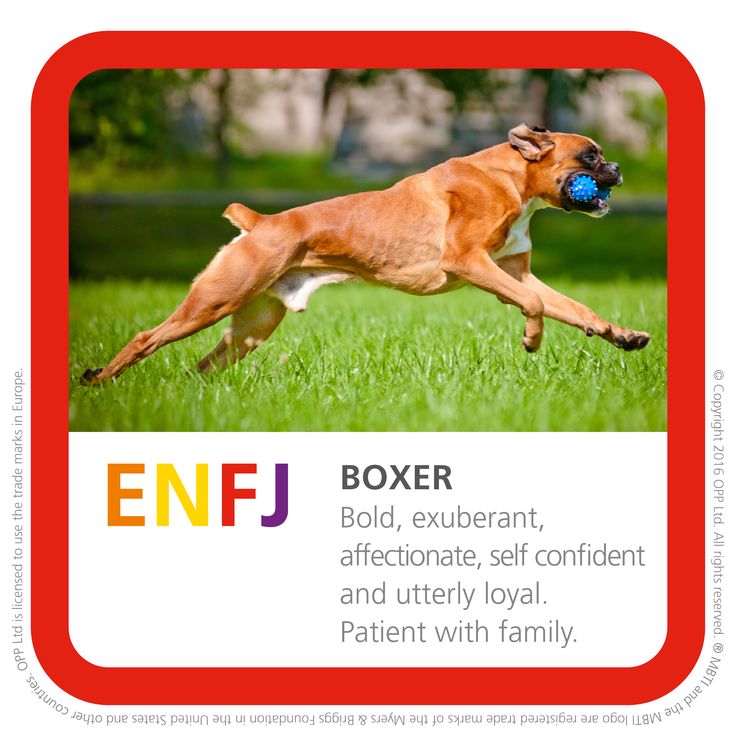 They love to be the center of attention, they love to participate in all family affairs, they follow their master with their tail and stick their wet nose everywhere.
They love to be the center of attention, they love to participate in all family affairs, they follow their master with their tail and stick their wet nose everywhere.
Do not forget that a curious dog needs to be constantly given experiences: choosing new routes on a walk, getting to know relatives, giving new toys and, perhaps, even traveling together.
Sociable
Source: UnsplashThese dogs welcome strangers like family, happily stay with children, and have dozens of friends in the neighborhood. They are friendly, easy to contact and try to resolve the conflict peacefully.
Social pets feel comfortable in a team, for example, when working in a team or playing sports with the owner. They can hardly endure separation and loneliness, so you should not leave them alone for a long time.
The owner needs to satisfy their need for communication: go to the dog parks, introduce other people and spend time together - play or learn new tricks.
Brash
Source: Unsplash These dogs add spice to their relationship with their owner.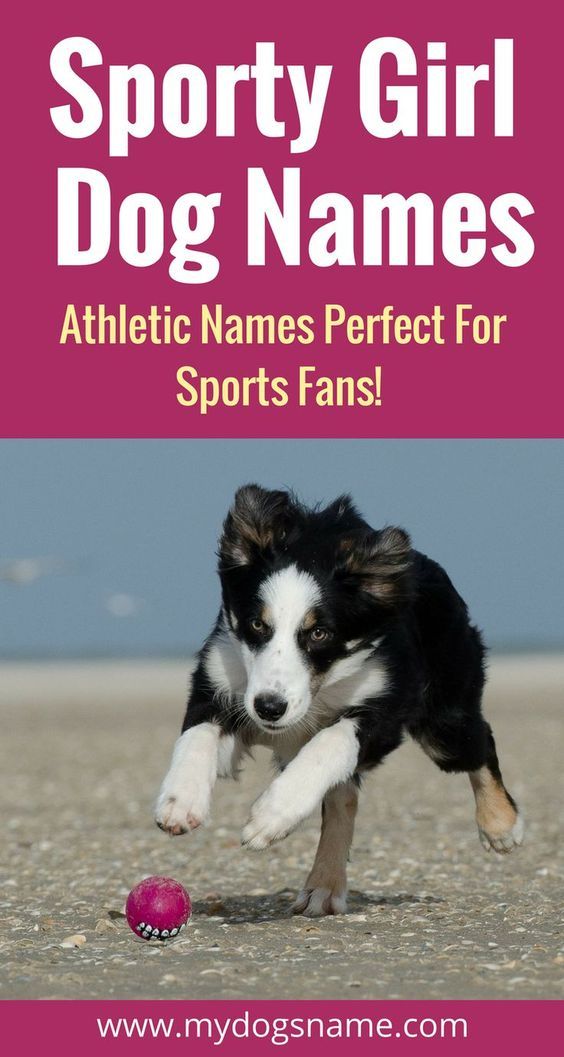 Adventures and vivid impressions with such a pet will definitely be enough.
Adventures and vivid impressions with such a pet will definitely be enough.
Bold dogs are quarrelsome, quick-tempered and stubborn. The owner needs to be especially persistent, patient and consistent in order to make an obedient companion out of such a dog.
Shy
Source: UnsplashSuch pets are usually quiet, delicate, unobtrusive. They do not like attention to themselves, unsociable. These character traits can be a breed feature, or they can be the result of stress experienced in the past. In this case, dogs become insecure, timid, have phobias and show no curiosity towards toys or relatives.
There are many ways to get in touch with a shy pet: through petting, reverent communication, or treats. Offer your pet wet food or a few dry kibbles as a tasty and healthy treat.
Another way to make your dog more confident is new tricks and commands. For example, at your request, she can put her paws on various objects or touch them with her nose.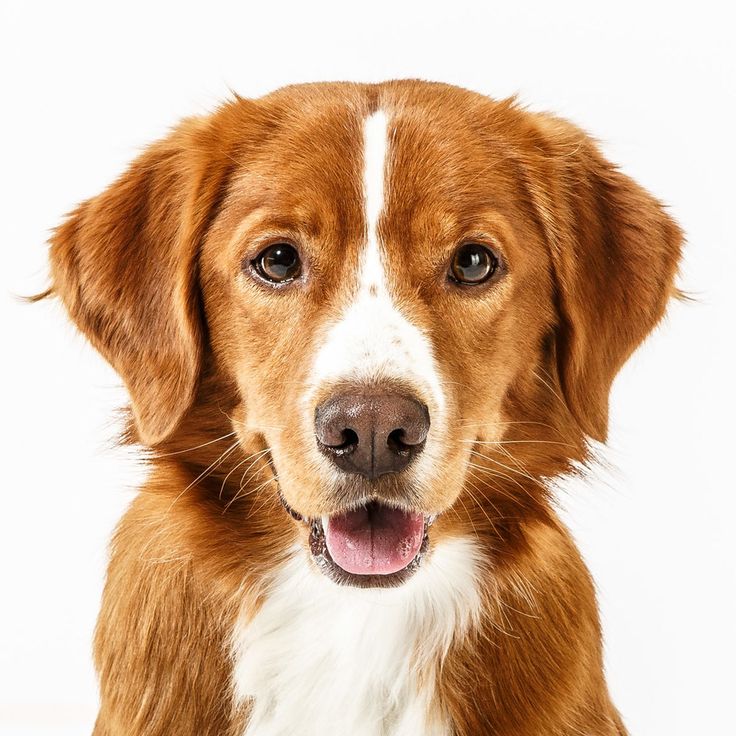 In this matter, it is important not to rush and gradually accustom the dog to conditions that were previously uncomfortable for him.
In this matter, it is important not to rush and gradually accustom the dog to conditions that were previously uncomfortable for him.
- The unspoken etiquette of dog lovers. 8 rules
- What can a dog owner be fined for. Analysis
- Is it true that dog owners are healthier than cat owners
- Rules of life for a decent dog, or how a dog owner should behave in society
- 6 stupid (and not so) questions for dog owners
Characters 7 classes of breeds for selecting a dog by character
If you are looking to adopt a new pet, you are probably interested in the personality traits of certain dog breeds. Whether you want a puppy that will sit comfortably on the couch with you, or one that can take you on long runs and hikes, a dog's personality traits are largely determined by which of the seven main breed classes she applies. If you already know what kind of dog you would like to have, find out which breed is best for you and/or your family. The local animal shelter is a great place to find the perfect dog. They have both purebred dogs and representatives of mixed breeds. In this article, breed types are classified according to the American Kennel Club.
The local animal shelter is a great place to find the perfect dog. They have both purebred dogs and representatives of mixed breeds. In this article, breed types are classified according to the American Kennel Club.
Herding Dog Traits
Dog breeds belonging to the herding group, according to the American Kennel Club, are intelligent, serious, and have a developed sense of smell. Since they show strong possessive instincts regarding "their" territory and "their" people, they make excellent watchdogs. However, they can rush at people and bite - this is their instinctive reaction, because their ancestors were bred specifically to herd and protect herds. These dogs are very hardworking and athletic.
Herding dogs are intelligent and belong to the group of the most easily (and willingly) trained dog breeds: they are well suited to dog sports and competitions.
Herding dogs fit well into large families: they love to spend time in the company of people. Even if you don't have a big house, but you have a big yard and other animals, these dog breeds are perfect for you.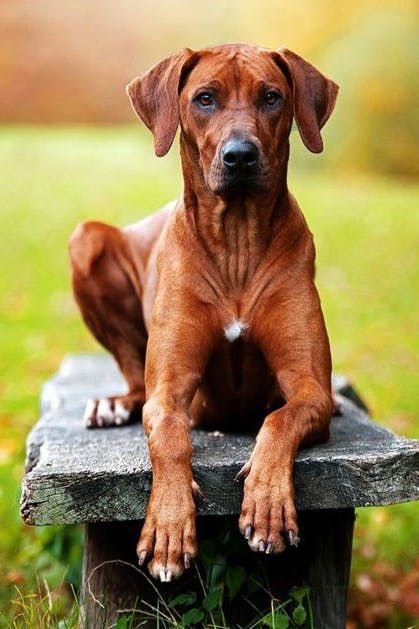 Partnership is very important to these dogs, so bring her into your family if you are looking for a loyal, loving pet.
Partnership is very important to these dogs, so bring her into your family if you are looking for a loyal, loving pet.
Breeds belonging to the herding group: Australian Cattle Dog, Australian Shepherd, Bearded Collie, Belgian Shepherd, Border Collie, German Shepherd, Pembroke Welsh Corgi, Puli and Sheltie.
Character traits of hunting dogs
There are two main types of hunting dogs: trail hounds and greyhounds. Greyhounds look out for their prey. They are flexible and fast. Hounds on the trail sniff out what they're looking for. They are strong but slow.
Both these types of hunting dogs are very inquisitive, independent creatures. They can be trained, but they must understand why they are taught. Their intelligence is a double-edged sword and if they don't think training is important, they will simply ignore all your hard work. For this reason, it is better to train them with the help of professionals.
Hunting dogs are a good choice for people who have a safe place for their pets to explore.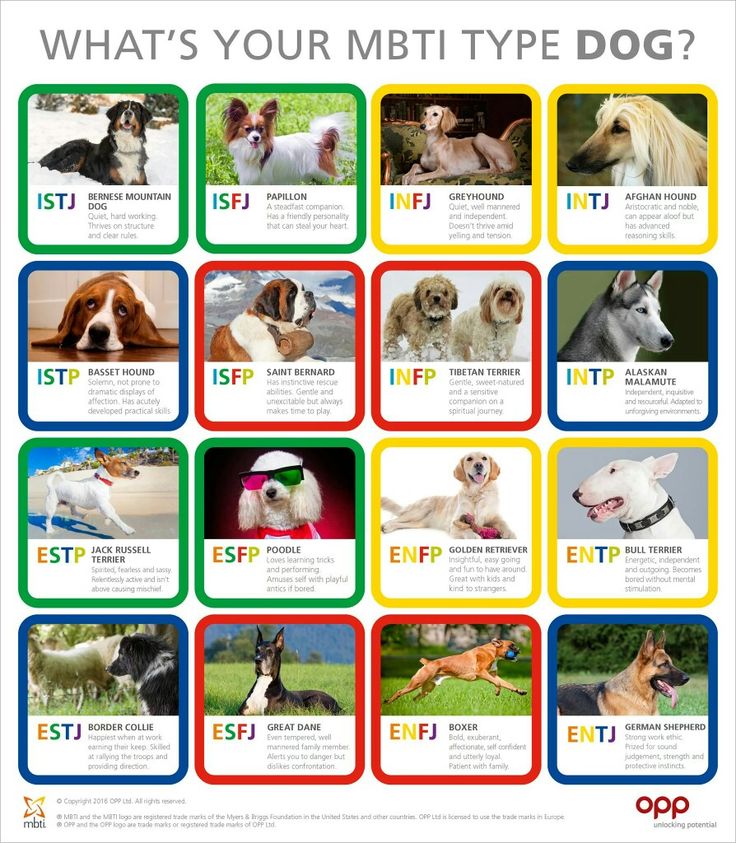 They must always be kept on a leash, otherwise they can run away and get lost. They also need a patient owner, as hunting dogs often want to "hunt down" different smells or scents that you may not be interested in.
They must always be kept on a leash, otherwise they can run away and get lost. They also need a patient owner, as hunting dogs often want to "hunt down" different smells or scents that you may not be interested in.
Breeds that belong to the group of hunting dogs: American hounds, basset hounds, beagles, dachshunds, greyhounds and greyhounds, norwegian elkhounds, rhodesian ridgebacks, raccoon hounds and small english greyhounds.
Character traits of sports dogs
Sports dogs are always active and alert. They can easily cope with a variety of tasks at once and lend themselves well to training. They are bred for hunting and, depending on the subclass of the breed, they will find, point, "smoke", hold or bring their prey to the hunter. Water dogs of this class love to swim and enjoy spending the whole day on the beach. Sport dogs make excellent therapy or guide dogs.
Sports dogs are perfect for those who are willing to regularly engage and entertain them. If you are looking for a pet that will keep up with your active lifestyle, an athletic dog may be your perfect companion. They also make excellent family dogs.
If you are looking for a pet that will keep up with your active lifestyle, an athletic dog may be your perfect companion. They also make excellent family dogs.
Breeds belonging to the sport group: Chesapeake Bay Retriever, Cocker Spaniel, Golden Retriever, Irish Setter, Korean Jindo, Labrador Retriever, Pointer and Weimar Hound.
Terrier Traits
Terriers, known for their playful and playful dispositions, come in a wide variety of shapes and sizes. They have a developed possessive instinct and will bark at anyone who approaches their home or family. They also like to hunt small animals (such as foxes or rats) and dig for their prey.
Terriers are a good choice for patient but energetic owners. Terriers love to exercise because it's a game for them. If you can match the vigor, you are sure to become best friends with them.
Terrier breeds: Jack Russell Terrier, Rat Terrier, Miniature Schnauzer, Scottish Terrier, Staffordshire Terrier and West Highland White Terrier.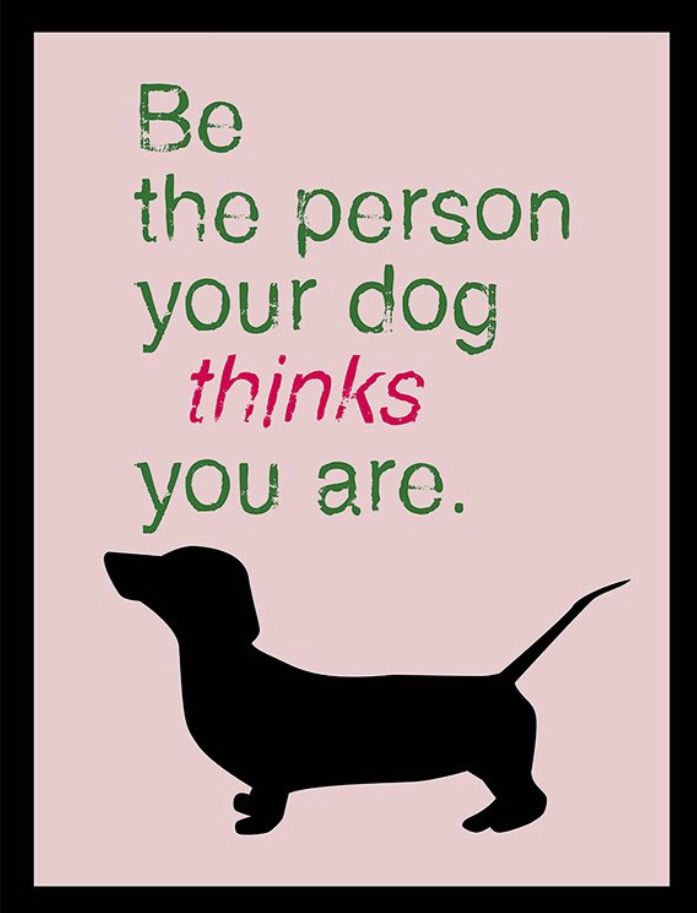
Companion Dog Traits
Want to get everything that dogs love for, but in a compact form? Then a companion dog might be perfect for you. They may not be big, but they make up for their size in character. Pet dogs are full of personality and have been bred for generations to be reliable companions. Most of them are very loyal, and some can be real owners - depending on the breed and upbringing.
Decorative dog breeds are ideal for people living in small apartments and houses. They do not require much space, but deserve a lot of attention. They can be perfect for adult couples without children or single people who work a lot.
Companion dog breeds: Cavalier King Charles Spaniel, Chihuahua, Chinese Crested Dog, Italian Greyhound, Maltese, Pomeranian and Pug.
Service dogs traits
Working dogs, the most diverse group, were bred to help people. The types of work they perform range from pulling sleds to guarding livestock. They are strong and intelligent, and certainly capable of training.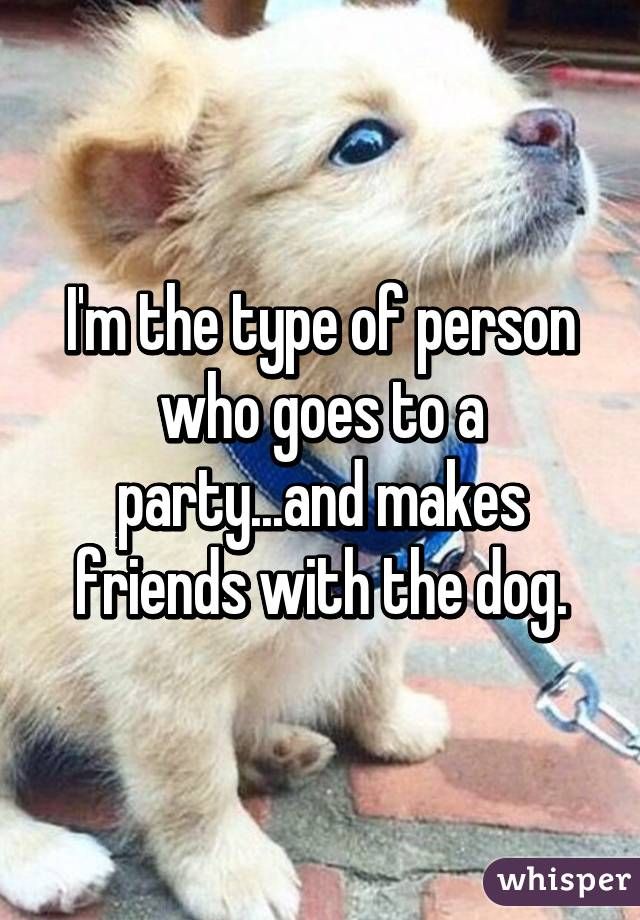 Many of them act as guards, but if they are properly brought up, they can be quite friendly.
Many of them act as guards, but if they are properly brought up, they can be quite friendly.
Service dogs are suitable for most people. If you have room for them, are consistent, and plan to keep them active, a working dog will make a great pet for you.
Working dog breeds: Akita, Boxer, Great Dane, Mastiff, Portuguese Water Dog, St. Bernard, Samoyed and Siberian Husky.
Character traits of non-sporting dogs
Breeding of non-sporting breeds began with the breeding of working dogs that ceased to perform the activity for which they were originally bred. For example, Dalmatians were bred to accompany horse-drawn carriages. Bulldogs were previously used as bull-baiting dogs. Today, none of these dogs have to fulfill these roles, so they occupy a worthy place in the category of non-sporting dogs.
Breeds that do not fit into any of the above categories are included in the diverse group of non-sporting dogs. Some dogs may be small, but not small enough to be categorized as toy dogs.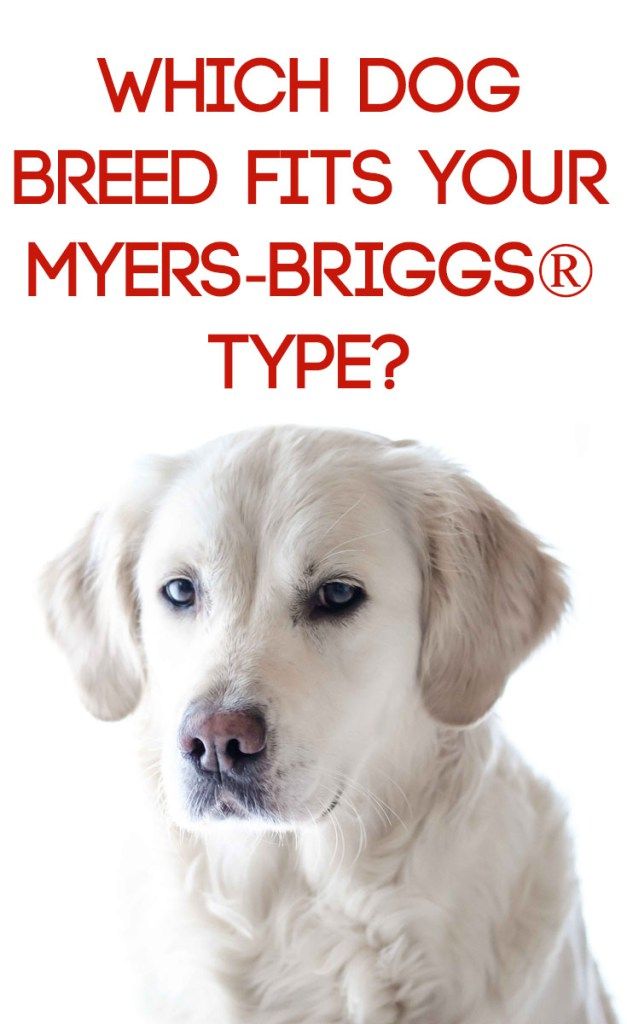 Others may be hunters, but not hounds or sport dogs.
Others may be hunters, but not hounds or sport dogs.
Non-sporting dogs can suit a wide variety of people. However, since every dog has a different personality, it's important to meet with your future puppy first and find out if he'll fit your lifestyle.
Breeds in the non-sporting group: Bichon Frise, Boston Terrier, Bulldog, Dalmatian, Wolf Spitz, Lhasa Apso and Poodle.
Although the typical personality traits are shared by most of these seven major groups, this does not mean that your pet cannot have other special personality traits. Your hound can not only play detective in the yard, sniffing every square centimeter of grass in search of "clues", but also happily snuggle up on the couch with you on a lazy Sunday. Likewise, your companion dog may be small, but not as fond of curling up at your side as its larger relative.
Remember, every dog has its own personality traits, regardless of breed. The fact that puppies of a certain breed group are extremely friendly in most cases does not mean that socialization and training do not play an important role in their development.